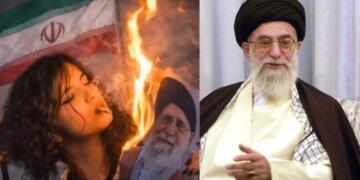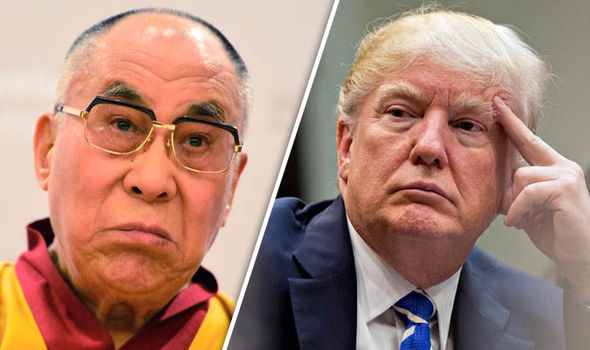Amidst the anti-government protests in Hong Kong, Tibet’s voice continues to be muzzled by the Chinese government as it attempts to eradicate Tibet’s identity. There are growing fears that the current Dalai Lama might be the last one to hold the coveted position as the Chinese government is determined to assert its authority over the position of Dalai Lama.
The US on Thursday rejected the Chinese claim on deciding the Dalai Lama’s successor and said that this was an issue that should be taken up in international bodies, including the UN. US Ambassador at Large for International Religious Freedom Samuel Brownback told reporters at a news conference.”There are many people who follow the Dalai Lama and don’t live in China. He is a well-known spiritual leader throughout the world and deserves respect and deserves the succession process picked by his faith community…”
Brownback reiterated that it was an issue that should be taken up in international bodies and said that The US is going to keep pushing on the issue. Brownback was recently in Dharamshala where he addressed the Tibetan community. He said, “He used to travel so much, was such a great spokesperson. I met him several times when he travelled to the United States – just was energetic and lively and clear. But he’s not able to travel as much now, so he can’t really kind of carry the cause the way he used to carry the cause almost single-handedly in the past.”
It may be reminded that Tenzin Gyatso, the 14th Dalai Lama was forced to flee to India after a Tibetan uprising was brutally crushed by the Chinese regime and formed a government in exile in India.The Chinese have since then, tried extensive socioreligious engineering in Tibet. In 1995, Chinese authorities seized the boy the Dalai Lama identified as the next Panchen Lama, the 11th in a distinguished line of incarnate lamas. The Chinese then installed their own candidate, claiming that the emperors of China in Beijing had set up a system to select religious leaders in Tibet. In 1995, as the list of probable candidates for the next Panchen Lama was sent to the Dalai Lama who continues to live in exile in India, Dalai Lama announced that Gedhun had been recognised as the 11th Panchen Lama. Unsurprisingly, exactly two days later, the Chinese government abducted the child and his family. None of them has ever been seen or heard from again. Fast forward six months and the Chinese government announced Gyaltsen Norbu as the next Panchen Lama who incidentally also happened to be the son of two Communist Party members. Gyaltsen continues to stay in Beijing and has rarely visited Tibet. In May 1996, China admitted that Gedhun and his family were being held at a secret location and China’s ambassador to the UN claimed that, “(Gedhun) has been put under the protection of the government at the request of his parents.” He did not say where Gedhun was being held.
The Panchen Lama is one of the most important figures in Tibetan Buddhism, second only to the Dalai Lama himself. The previous Panchen Lama (Lobsang Trinley Lhundrup Choekyi Gyaltsen) spoke out against Chinese rule many times and wrote a report chronicling Tibet’s famines in the 1960s. As a result, he spent more than eight years in jail and died in suspicious circumstances in 1989. The Panchen Lama identified as per traditions, by the Dalai Lama, has been disappeared by the CCP. In order to muffle their religious freedom and to give the Tibetan people a more compliant communist version of the spiritual leaders, China has named a Panchen Lama and forced the Tibetans to believe his authenticity. China in Xinxiang has diluted the ethnic Muslim population by flooding the city with the Han Chinese people which it has only been practising in Tibet since decades and there are no signs that China will scale back its operations to dilute the ethnic populations.
China continues to crush any voice of dissent in Tibet as whenever the monks and the nuns have led demonstrations agains the Chinese authority, China has responded brutally with heavy handed measures by imposing martial law or erecting police stations under monasteries and of course, the government’s personal favourite: the re-education camps where the dissenters are made to endlessly repeat statements like ‘‘I oppose the Dalai clique’’ and ‘‘I love the Communist Party.’’ Such acts have driven more than 140 people, including more than two dozen Buddhist monks and nuns, to the deeply un-Buddhist act of public suicide.
Considering the age of Dalai Lama, it is vital for the Tibetans to appoint his successor of their choice without the influence of the Communist Party of China. Sadly, even Dalai Lama admits that he may be the last person to hold the post and the world must wake up to pressurise China to retain whatever little is left of Tibet’s unique identity before it’s too late.

























